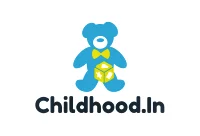Speech and language disorders in children are a fairly common occurrence, where a majority of which can be corrected by timely detection and correct interventions. Before we get into the common causes of speech and language disorders in children, let us first quickly understand what speech disorders are related to, and what are the characteristics of language disorders?
3 Areas of Speech Disorders in Children
- Articulation: Where the sounds produced by the child are incorrect. For instance, the child may find it difficult to articulate certain sounds produced by the letters ‘l’ or ‘r’.
- Fluency: Where a child’s flow of speech is disrupted by sounds and syllables, which can be in the form of words that are avoided, prolonged or repeated, where there could be blocks of silence, inappropriate inhalation or untimely exhalation.
- Voice: Where the voice has an abnormal quality to its resonance, pitch or loudness.
5 Characteristics of Language Disorders in Children
- Inability to express ideas
- Reduced vocabulary
- Improper use of words and their meanings
- Inappropriate patterns or grammar, and
- Inability to follow instructions and directions.
Now that we had a quick look at the characteristics of speech and language disorders in children, let’s look at the common causes of speech and language disorders in children.
6 Most Common Causes of Speech and Language Disorders
1. Nutrition
Whether it is a normal adult, a pregnant mother, a young baby or a toddler, the importance of balanced nutrition on a daily basis can’t be emphasised enough – especially during the first 1000 days of life of a child.
But unfortunately, when it comes to day-to-day diet, most people give very little or inadequate attention to just nutrition, let alone balanced nutrition.
The beneficial impact of a balanced nutrition on the body, especially the brain, is immense. Feeding the child right, especially during the first 3 years of life is critical.
Not only does balanced nutrition lower morbidity and mortality, it also reduces the risk of chronic diseases throughout the life of a child. Most of all, it promotes regular overall growth and development – including language and speech.
2. Foetal Alcohol Syndrome
Foetal Alcohol Syndrome (FAS) is caused when a mother consumes alcohol during her pregnancy.
Like prescription drugs, alcohol can pass from the mother’s blood to the baby in the womb through the placenta, therefore causing complications in the child before and after birth.
The effects can be related to physical, behavioural and even speech and language learning disabilities, among many others.
3. Premature Birth
Premature birth is when birth of a child takes place 4 or more weeks before due date. Babies born early in the trimester of pregnancy may experience delay in the development of what is called the Auditory Cortex.
It is a region in the brain that is essential for both hearing and understanding of sounds. Delays in the development of Auditory Cortex are associated with delay in speech and language impairments in children, especially in those around 24 months of age.
4. Low Birth Weight
Studies show that children with low weight at birth (less than 2.5 Kgs) have a relatively less cognitive abilities and lower attention spans when compared to those born with normal weight.
Attention span is one of the key skills required to improve speech in toddlers.
Studies also add that the speech-language developmental problems may continue well into childhood, even up to age 10.
Another outcome from the study states that children with low weight at birth are twice or even thrice more likely to be given speech therapy than their counterparts born with normal weight.
5. Hearing Loss
Hearing is important not only for normal development of speech and language in a child, but also for developing the ability to learn. Children with hearing loss find themselves unable to learn words as fast as those with normal hearing.
Loss of hearing or even the inability to hear properly could result in deterioration in the sharpness and clarity of speech, as the brain and ears don’t communicate with each other well.
Children will often find it difficult understand speech, especially when there is background noise, as there is a reduction in the ability to resolve the frequency of complex sounds generated by words.
6. Family History
There are many studies that show the prevalence of language-related disorders, among family members of children who have/had speech and language disorders.
This could be a clear indication of the genetic aspect as regards speech and language capability in children, which is beyond the control of the parents and the child.
Other Rare Causes of Speech and Language Disorders
- Autism is inherently a speech & language and social communication disorder combined. If you see social delays in your child along with speech and language delays, it may be an indication for concern.
- Syndromes like the Downs Syndrome and Fragile X Syndrome.
- Stroke is one among the causes, though not too common (fortunately). Stroke happens when there is a blockage in the flow of blood and oxygen to the brain, causing brain damage including in those areas that are related to speech, language and learning.
Conclusion
While every parent should know about the fact that there are indeed certain common causes of speech and language disorders in children, they should also be aware and conscious about the fact that early detection by close attention, and timely treatment with lots of affection, can go a long way in significantly mitigating the potential disorders in any child.
Related Article : 23 Effective Practices for Language Development Milestones from 0 – 3 Years
Disclaimer: The content in this page and across this website are for informational and educational purposes only. In case of any concerns about your child’s growth and development, please contact your professional child healthcare provider.

